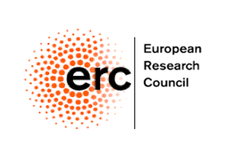Representative Government Through Democratic Governance (REPGOV)
Grant number: 101020966
REPGOV is a pioneering project that links administrative policymaking to representative government in a new way. At its heart is a simple idea, but a democratic dilemma: the discretion that modern governments give to administrative officials not only captures the means for implementing policies, but also democratic values and the authority to make tradeoffs among them. How does the structure of public administration influence these value tradeoffs? What are the implications of this as the structures in use have become more complex? There have been many attempts to address these questions, but none at this scale, and what distinguishes REPGOV from extant literatures is its overarching research question: How does the structure and organization of public administration shape the democratic belief systems of officials?
The traditional legitimating narrative of public administration confines democratic values to the relationship between political representatives and public managers. This traditional perspective balances the accountability of public managers to political representatives, a problem of control, with the need for administration to work effectively, a problem of capability. REPGOV turns this narrative on its head by arguing and illustrating how public managers have the discretionary authority to make decisions that define—or redefine—the nature of democracy for the governments and citizens they serve. It examines how changing or adding structures of governance, as when performance targets or citizen participation are included in administrative decision-making, can strengthen, or weaken, the values of a representative democracy.
While institutions matter, the behaviour of public administrators matters, too. Their democratic belief systems may well be shaped by the value tradeoffs implicit in the structure of their offices, but their beliefs can also diverge from those incentivized by their organizations, and, consequently, have an independent influence on democracy. This argument yields a value reinforcement hypothesis—democratic values in the structure and practice of public administration reflect the democratic values of a political system—that lies at the core of REPGOV. Does public administration reinforce the values of representative government? Why and how?
REPGOV’s mixed-methods empirical strategy qualitatively explores the mechanisms of value reinforcement in various administrative settings in contemporary Europe, employs machine learning techniques to explore the syntax of value reinforcement in laws and regulations, and experimentally examines structured choices about reinforcing values. REPGOV aims to illustrate how the democratic value trade-offs made by public administrators are an important missing link in contemporary discussions about the quality, and the nature, of representative government.
Membres de l'equip

Persona de contacte





Col·laboradors externs
- Valentina Mele (Bocconi University)
- Maria Cucciniello (University of Edinburgh)
Institucions finançadores

Coordinador/a



